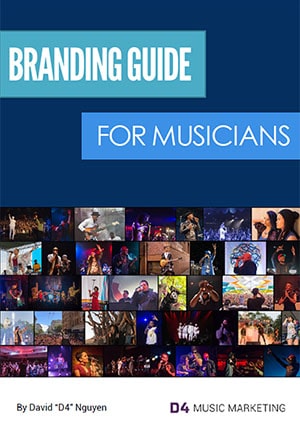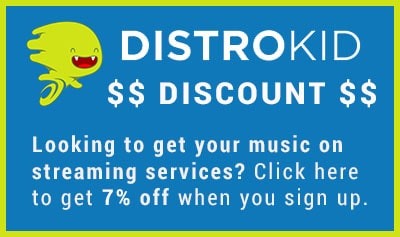
Being an independent artist doesn’t mean you have to do everything alone. In fact, you shouldn’t.
The best advice that Tierra Whack received came from Andre 3000 (Outkast). He told her it was very important to build a strong team to help exponentiate her career. Having this support system isn’t just about handling specific tasks for your business, it’s also to help you plan your next steps, keep you grounded and offer emotional support when needed.
If you really want to take your music career to the next level, you will eventually need a team. They don’t necessarily have to be people who you hire to work exclusively with you. At the very least, you need to form relationships and a network with skilled people who are good at what they do.
As someone who works on a number of artist teams myself, I’m going to cover what types of people you may need as an independent, how you may find them and what qualities to look for in each member of your team.
Why is a team necessary?
The key to growth is finding a team to help you in areas that either take away time from you being an artist or require skills you don’t currently possess.
You may be one of the few artists who loves running his/her entire business operation and manages to do it well. However, it is difficult to exponentially grow this way. The fact is, it’s not possible to DIY everything because your time is limited. By hiring others, you’re essentially investing in your future by saving yourself time to focus on what you do best and what you love most.
Of course, not every musician is going to be in the position to find and pay others to be part of their team early on. Aside from money, you need to establish some value in order for people to want to work with you. Whether it’s releasing good songs, showing growth in your fan base or developing a strong brand, you want to attract those around you to be a part of your journey. You need proof of concept that others want to buy into.
Until then, you’ll have to do it yourself.
DIY First
In the early stages of your career, you’ll have to do it yourself because you most likely won’t have a choice. Although it sounds like a hassle and a lot of work, it’s important to be hands-on and learn how to do things first hand. You don’t have to be an expert in every area of your business, but you do need to know enough to understand what to expect from who you’ll eventually hire.
As you develop and gain more experience as a musician, you’ll want to keep an eye out on potential people to work with. In the back of your mind, you want to assess new people you meet or even those already in your network that could potentially be a part of your team as you grow.
The idea is to eventually outsource jobs or tasks that you’re not the best at or would take away time from focusing on your strengths. This early phase is an opportunity for you to learn how things are done, figure out what you need exactly and learn to communicate your expectations.
What roles should you look to fill on your team?
Here’s a list of roles you’ll want to add to your team at some point or at least build a relationship with certain individuals you can depend on when needed. This is in no particular order of importance.
As someone who does more than half of these roles in varying degrees for different artists, you may benefit from someone who can fill multiple roles. Chances are there’ll be some overlap as it’s now more common than ever for entrepreneurs, freelancers and creative types to wear multiple hats.
Booking Agent
A booking agent focuses on contacting the right people to land you gigs. Depending on their specialty, the types of gigs can be from your typical live performances (concerts, festivals, tours) to even speaking engagements and corporate events.
Booking agents will often have strong connections or relationships with talent buyers, promoters and venue owners in specific areas or cities, which allows them to book shows much easier. In addition, they handle the logistics, negotiations and finances of the gigs they book.
Booking agents will often work on commission so they take a cut of the opportunities they secure for you. Unless you’re an established act with a sizable following or have some sort of buzz, a booking agent isn’t likely something you need earlier on in your career. You need to show that you can draw interest from fans and sell tickets before it makes sense to work with one.
A booking agent will need a well made Electronic Press Kit or EPK to pitch on your behalf.
Music Marketer / Strategist
This is someone who understands music marketing to grow your fan base and how to keep them engaged. Based on your goals, a marketing strategist should be able to develop a strategy and plan that is most effective to reach those goals. It’s a major plus if they can handle the technical aspects like managing a website, building your email list, analyzing data, and setting up social media ads to find you new fans.
This is the area that I’m trained in and recommend all artists to be familiar with as well. In order to be most effective, a music marketer is heavily dependent on content, like photos and videos, a release plan and an ad budget.
Temporary Alternative: There’s a lot that goes into music marketing so there’s no all-encompassing temporary solution to use that can replace a human to do the same tasks. Start with learning the basics yourself. To help you, there are a number of tools for online marketing.
Check some of these links out:
- Free online marketing tools
- Apps for musicians
- The best smart link tools
- The ultimate singles release checklists
For tools to help with paid social ad campaigns, try these:
Social Media Manager
A social media manager specializes in creating a posting schedule, designing content and engaging with your fans to keep your social accounts active.
Some artists enjoy doing this so it’s not necessary to have someone dedicated to managing your online presence on social media.
If it’s not something you enjoy, it would make sense to outsource it to someone who has a good sense of how you talk and can imitate you online. When you’re more established and popular, there tends to be more negativity thrown at you which is why some artists like to hand this off to someone else to manage.
Personally, I’m generally hands-off when it comes to social media for clients unless it’s to post something that is planned ahead of time or it’s for paid ads. Otherwise, I think it’s important for artists to maintain direct and authentic interactions with fans on social media whenever possible.
Photographer
Every musician needs visual content. You need photos for your website, flyers, bio, EPK, album art and social media. Being able to consistently produce new photos is crucial in keeping your brand fresh, relevant and in tune with your branding (plus whatever you are promoting at a specific time).
Schedule photo shoots with a photographer regularly or bring them along with you to capture content from studio sessions and/or live performances. This gives you the freedom to focus on the task at hand while having someone in the background capturing worthwhile moments for your fans.
Videographer
One of the biggest investments artists can make is in creating video content. It’s the reason why I decided to invest more time and money into videography. As an emerging artist, just having a good song isn’t enough in today’s music industry. You need some type of music video to get people’s attention, especially on social media and in paid ads.
Like a photographer, a videographer is someone who has a good eye for visuals and using colors/tones to brand your image as well as being well-versed in editing software. You’ll want to bring them around for gigs and recording sessions to capture behind-the-scenes content.
Graphic Designer
Whether it’s for cover art, logos, or social media, having a consistent design aesthetic is very important for branding. Your brand is what your fans emotionally connect with, so you want visual elements that reinforce how you want to be perceived. How you present yourself in a consistent manner is what often separates amateurs from professionals. A graphic designer is not someone you need all the time, but you should be able to have access to one when projects/releases arise.
Temporary Alternative: Create your own graphics using a free app like Canva (Affiliate Link Disclosure). Although nothing beats having a professional designer, this is a great free alternative because you can literally create anything with tons of free templates and it’s very easy to use. I personally use and recommend it.
Producer
A music producer is an essential part of the song creation process. They are in charge of the creative and technical aspects of how a song is put together and recorded. This also includes setting up the recording sessions and bringing additional musicians needed for a track.
Essentially, a producer takes a song you’ve written and works with you to make it the best it can be based on your vision. A good music producer is very familiar with all sorts of styles and the elements required to give a song energy, dynamics and flow.
A producer will often make or compose their own beats and instrumentals as well, but not all beatmakers are necessarily producers. There are a lot of different skills that are involved in producing a track so you’ll have to find the one that works for your needs and musical style.
Mixing / Mastering Engineer
Mixing and mastering engineers make your songs sound the best for when it is made commercially available for listening and downloading on digital service providers like Spotify and Apple Music. In some cases, the producer can handle this as well.
Hiring an experienced engineer with a good vision of what you are looking for is vital. A good mixer with the proper tools is what separates professional-sounding songs from the rest. You can write and record great songs, but if the mix is not good, your song may not realize its full potential.
There are many artists who do have a vision of what they want but don’t have the technical language/understanding to effectively communicate it. Understanding the basics of mixing such as panning, EQ, compression, reverb, etc… is also something I recommend, as it can help you articulate your vision more accurately to your mixing/mastering engineer.
Temporary Alternative: At least for mastering, there are automated services that can help with mastering your songs like Landr (Affiliate Link Disclosure). An artist I work with has used them another time for smaller projects.
Publicist
The job of a publicist is probably the one that is most misunderstood. You often think of needing to hire one for promoting a new release and getting exposure to new potential fans. In reality, a publicist helps to build your brand and manage your public image in a positive light. One of their main jobs is to create and pitch engaging stories about you and your music through press releases to influence public perception. They do this with their connections to different media outlets (blogs, magazines, news publications, print, radio).
Another way to look at it is a publicist pitches and advocates various media outlets to create content focused on you for their audience. This content gives you more exposure in the form of a blog story, articles, interviews, video or even television appearances.
So yes, if you do have a new album release and/or a tour, a publicist’s job is to help get the word out.
I’d say this job/role is something you’ll need hire for once you’ve become more established as a professional artist and have a sizeable following. A publicist’s value is in the professional relationships they’ve built and their reputation in what they are pitching. Unless you’ve got something newsworthy going on, they can’t do much for you. Not to mention, hiring a publicist for your team is not cheap. A vetted publicist can easily run you a few thousands dollars a month.
Temporary Alternative: Although the mainstream music publications (Rolling Stones, Pitchfork, The Fader, Complex) are usually only accessible through a reputable publicist, there are thousands of independent music blogs out there you can reach. Although they don’t have the same power they once did, you can pitch your music directly to them. You can also use a service like SubmitHub or Groover, which is an affordable way to pitch to music bloggers, playlisters and influencers.
Managers
The right manager can propel your career immensely by helping you handle the business side of music you probably don’t want to deal with. This includes seeking the best business opportunities, keeping you on track with your goals, creating a manageable itinerary, serving as the liaison for you and the team, negotiating contracts and even handling some of the marketing. They can provide support and advice, whether it’s personal or professional.
Managers can be from different backgrounds. Some musicians enjoy the business side of things and turn to artist management. They have the advantage of understanding the artist’s side better and being able to find compromises when needed. On the other hand, you have some managers who focus on entrepreneurship without having any musical background. They can help you see things in a different way and make your business run more professionally.
Like booking agents, music managers work off commission and take a percentage cut of what you earn. The standard rate is usually around 15% to 20%. Unless you’re an established act who can generate income from your music, it will be difficult to find an experienced manager to work with you.
Although having a manager can be a great asset, it’s debatable if you truly need a manager as an independent artist to succeed. Many have this misconception that they need a manager to propel them into stardom. The fact is, an experienced manager who has the connections and experience you want is most likely to approach you only after you break into the industry and establish yourself.
As someone who serves as a pseudo-manager at times, I feel the most important thing for an artist is just having someone who can help with the business side of things, whether they have the title of manager or not.
Music Attorney
When it comes to the legal side of music, you’ll definitely need to have access to an attorney. This is especially true when it comes to signing contracts, music licensing and handling copyright issues. There have been so many horror stories where artists screw themselves over by record labels by not having a lawyer look over the contract. Chances are you’re less likely to need an attorney early on in your career, but it would be good to know someone you reach out for legal advice or guidance. Keep in mind, lawyers are expensive.
There are some basic things you can learn regarding the legal aspect of music, such as copywriting your songs, designing contracts for co-writers or musicians for hire. There are many sources out there that explain the basics and I’d recommend you spend some time getting familiar with this area.
Temporary Alternative: Find a local VLA (Volunteer Lawyers for the Arts). These are nonprofit organizations that work with volunteer attorneys to provide free or low-cost legal services for artists.
Other Musicians
Your team could also include other musicians like in a band. Whether you’re looking for bandmates or you just need studio/session musicians for a song, here are some sites to check out:
How to recruit people for your team
Once you’re somewhat established and can afford to build a team, you will be able to recruit motivated and competent people to work with. Hopefully, if you’ve applied a community-oriented mindset in the earlier stages of your career, you should have some potential candidates in your network already.
If you can’t afford to pay someone at the moment, you need to find eager people who are looking for experience and are willing to do it in exchange for something you can provide them (or hire them at a low rate). You’re more likely to find other creatives like photographers, videographers and graphic designers to work within this capacity.
Here are some ideas to help to get you started:
- Start inquiring within your own personal network. Ask your friends or other fellow artists if they know anyone they can refer you to.
- Make a post on social media to your fans with what you’re looking for. This was exactly what Butterscotch did and how I ended up working with her.
- If you’re a college student, see what kind of clubs or organizations are on campus. There may be videographers, photographers and graphic designers who need more experience and would be willing to do unpaid work.
- Search in your local community for an art or music collective. You might find potential people there or other artists who might know people in their network.
- Ask on music online communities and forums with other artists like a Facebook Group or Reddit.
- Look around on professional networks like LinkedIn.
- Check freelancer marketplaces like Landr’s Network (My Profile),Fiverr and Upwork.
- Post an ad on Craigslist or look around to see others who are looking for opportunities.
- If you’re looking for producers, find musicians you like on platforms like SoundCloud. This was how Alina Baraz ended up working with Danish electronic producer Galimatias and created the Urban Flora EP that launched her career. You can also try browsing producer related hashtags on Instagram or Twitter.
What should you look for in a team member?
As someone who works as a member of other artists’ teams, here are my suggestions on what you should look for to work with someone long-term.
- Do they have their own personal goals and aspirations that motivate them? You don’t ever want to bring on someone who just needs the money or doesn’t have a drive of their own. Their goals should align or intersect with yours in some way so they stay motivated.
- Are they fans of your music? Clearly if they don’t like your music, they won’t have any faith in your career. This is something that may not be obvious or apparent, but something you need to be cautious about. Personally, I wouldn’t feel right if I didn’t like the music of an artist I worked with or at least saw the potential for them to make good music.
- What are their values and perspectives? I find that it’s nice to work with people who see the world similarly to us and even share our interests and hobbies. Do you actually get along with them and like spending time with them? Keep this in mind, as long-term partners can be hard to come by.
- How well do they communicate and respond? This is a crucial aspect to consider when working with anyone. Being able to communicate your expectations and have the other person understand them is a valuable skill set. You also need someone who can respond to you promptly and isn’t afraid to share their honest thoughts.
- Lastly, are they good at what they do? This might seem like an obvious one. A factor you should consider, however, is that the more knowledgeable someone is in their field, the more likely they will be expensive. You may be dealing with someone new to a field or less experienced, but that is not a bad thing necessarily as it might be lighter on your pockets. Either way, you want to have people who are excited about learning and getting better at their craft.
Of course, there are other things you may want to consider before working with someone, but ultimately you want people who are willing to grind it out, and not just try to take advantage of you and earn a quick buck.
Conclusion
The best way to find people to work with for the long term is to continually work on your craft and be really good at what you do. People who are truly fans of your artistry will reach out or find ways to work with you.
This is how it started for Pat Corcoran who became Chance the Rapper’s manager despite not having any real experience managing artists. The same goes for Chris Zarou who became Logic’s manager with little music industry experience.
When I first started out, I knew nothing about the music industry. I reached out to the only active musician friend I knew and offered to work with her for free, to gain experience. It just so happens I was a big fan of her music as well.
The early stages of a music career are rough. It’s not easy to develop as an artist, grow a fan base, release music and run your music business all at the same time. But this is part of the journey that requires the most patience, drive and consistency. Keep putting yourself out there and continue to put the work in to develop as an artist.







